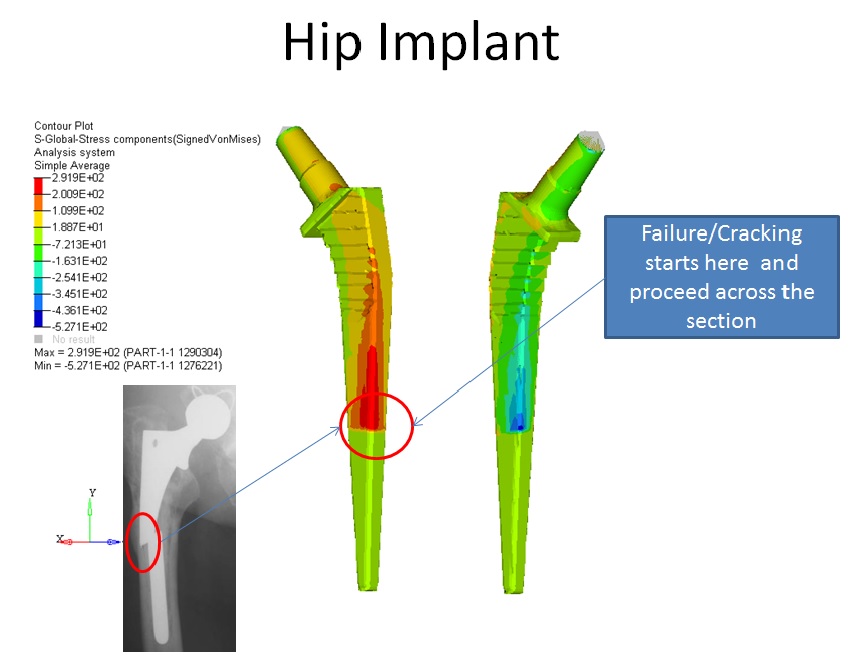Chennai, NFAPost: One of the most frequent and severe joint inflictions, osteoarthritis, often requires administration of a Total Hip Replacement (THR). This implant, being significantly load-bearing, requires a complex design that is strong enough to withstand long duration of load. Bone implant designs must be precise and durable in order to withstand significant load and pressure over time.
Detroit Engineered Products (DEP), an Engineering Solutions and Product Development company, has tackled this challenge by developing 3D CAD models for implants and building an effective fatigue evaluation model to assess the life cycle of various implants.
Through its proprietary CAE platform, MeshWorks, DEP utilized unique morphing and meshing tools in order to further understand non-standard hip implant geometries. This enabled DEP to carry out hypothetical test scenarios and estimate the fatigue life of implants, which resulted in significant benefits in extending the overall life of the implants.
Since its inception in 1998 in Troy, Michigan, USA, DEP is now a global company with footprints in Europe, China, Korea, Japan and India.
Detroit Engineered Products Founder & President Radha Krishnan said, “DEP’s MeshWorks technology provides a unique platform that allow users to generate multiple, customisable designs based on customer variations. It helps in reducing the design time vis-à-vis traditional methods of implant design.”
“It also brings down the design costs for companies and serves as a comparative tool for different competitive products. Our sole aim is to bring a transformation in the product development industry and introduce organizations to new age technologies,” he added.
With its in-house design team and CAE platform, DEP’s implant designs provide the critical ability to obtain fatigue life cycles of implants and run multiple different tests upfront in the design process to help combat uncertainty once the implant is created and implemented. Additionally, DEP’s implant designs are durable in order to withstand sufficient durations of load and provide an added level of certainty, during the design stages, for the life cycles of each implant designed.




